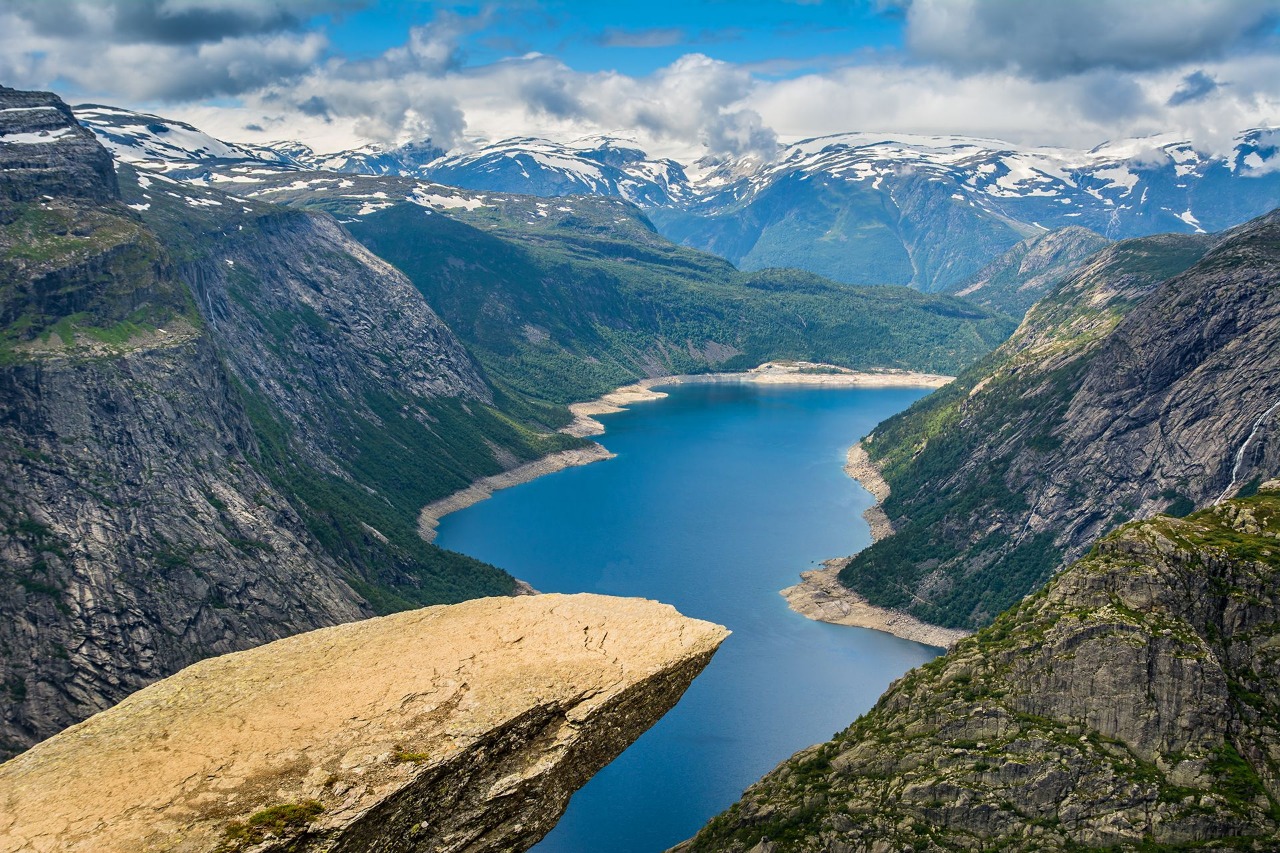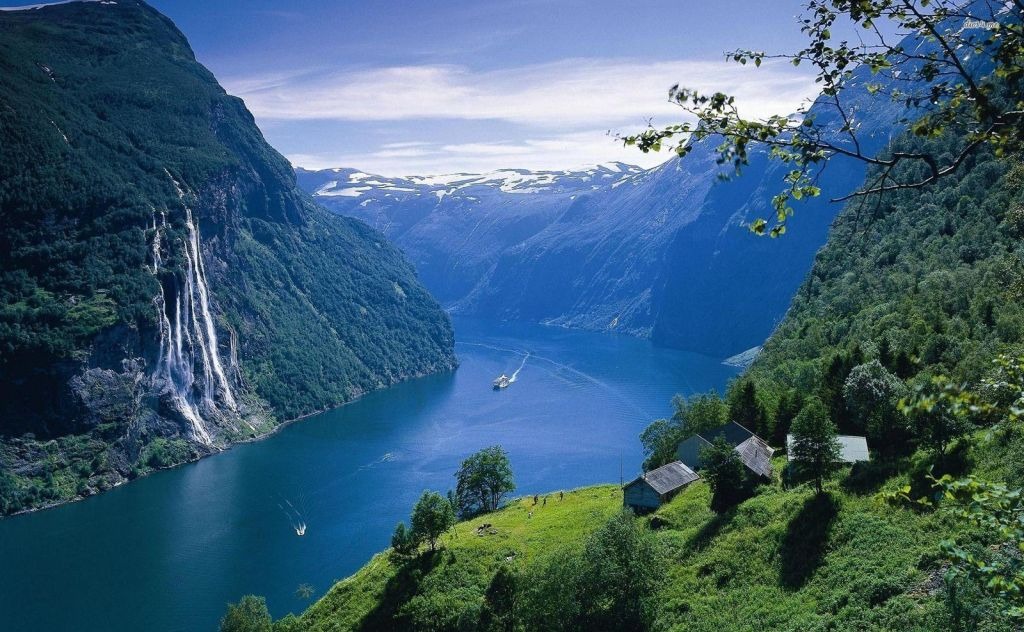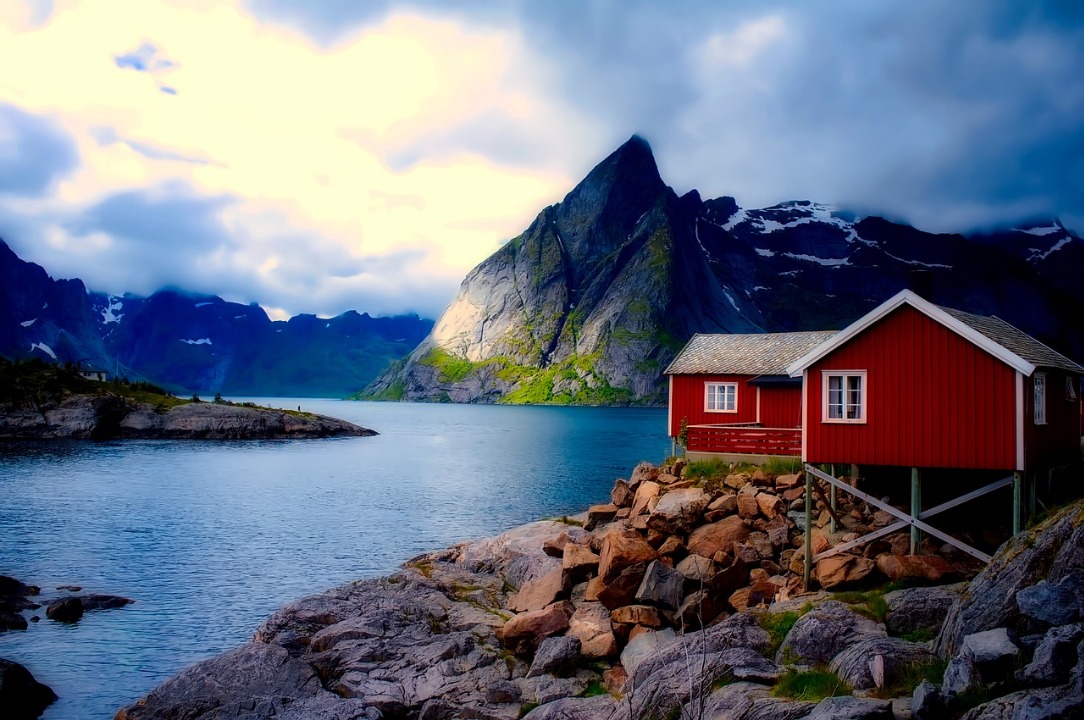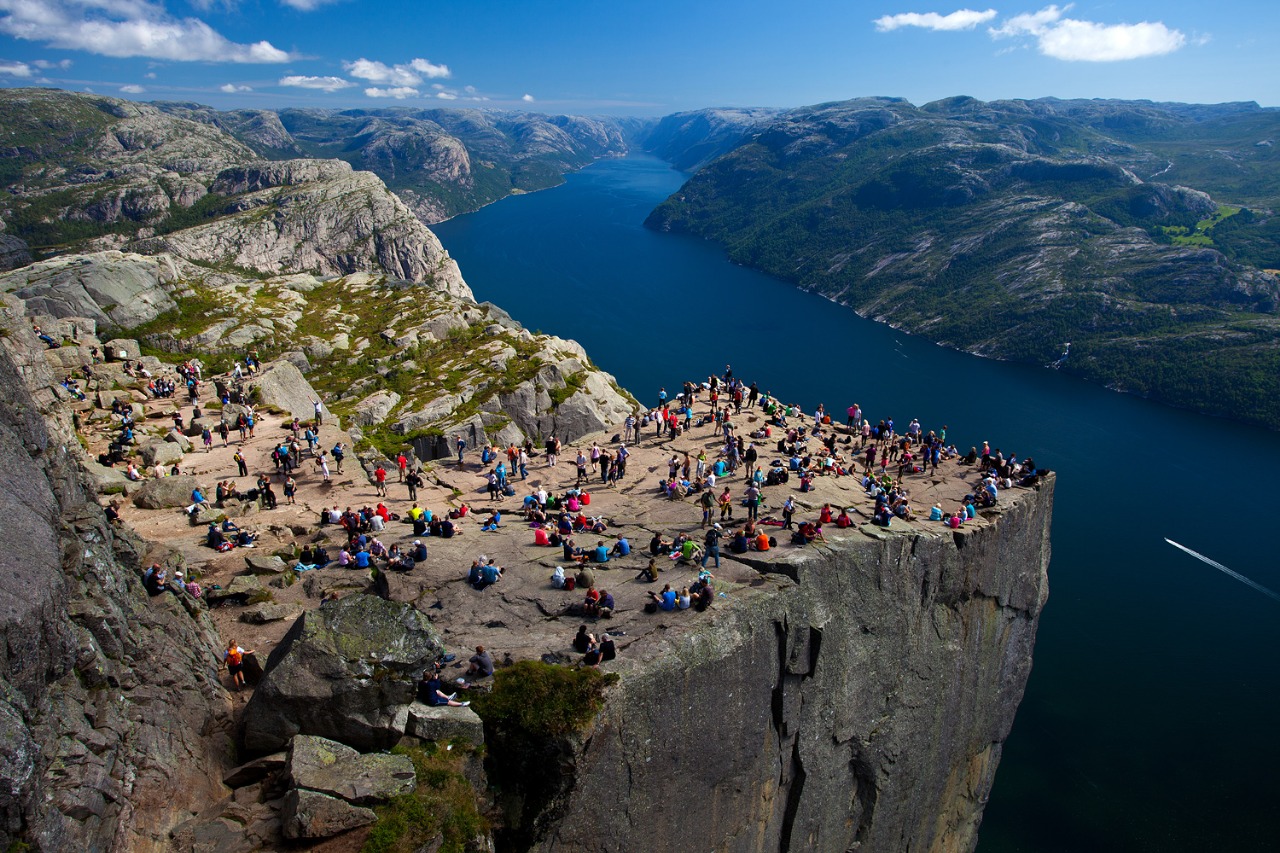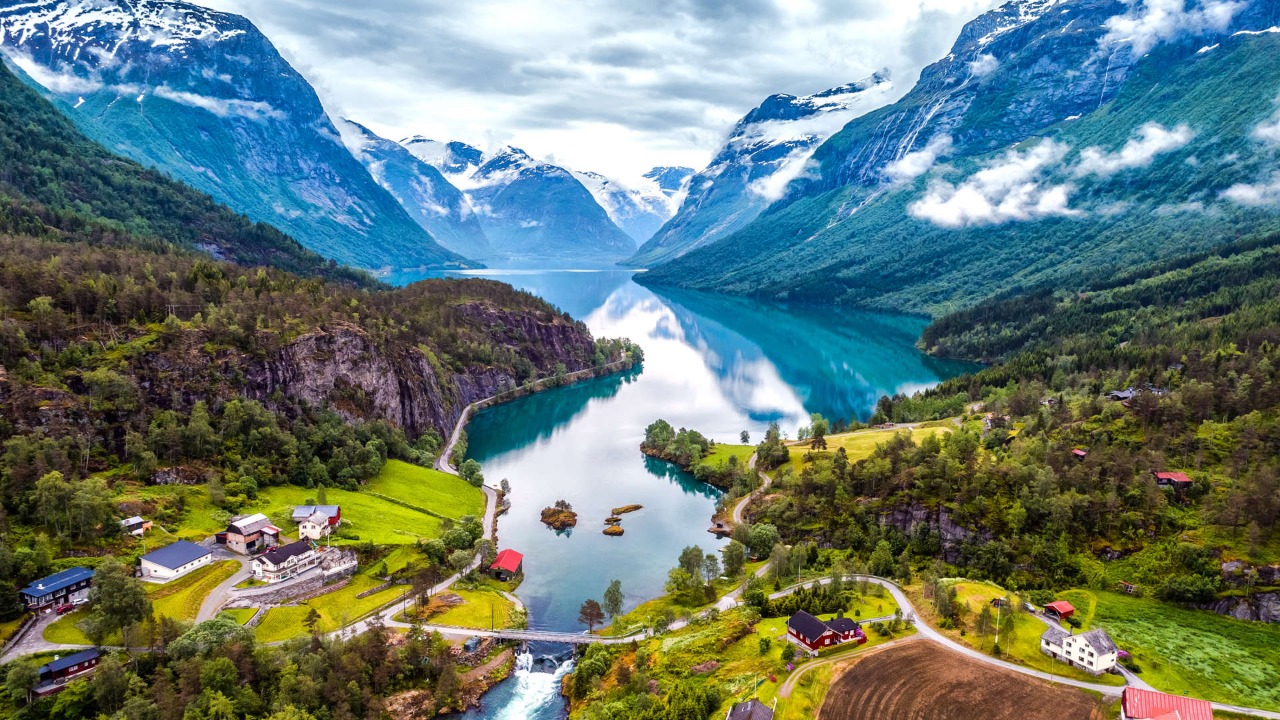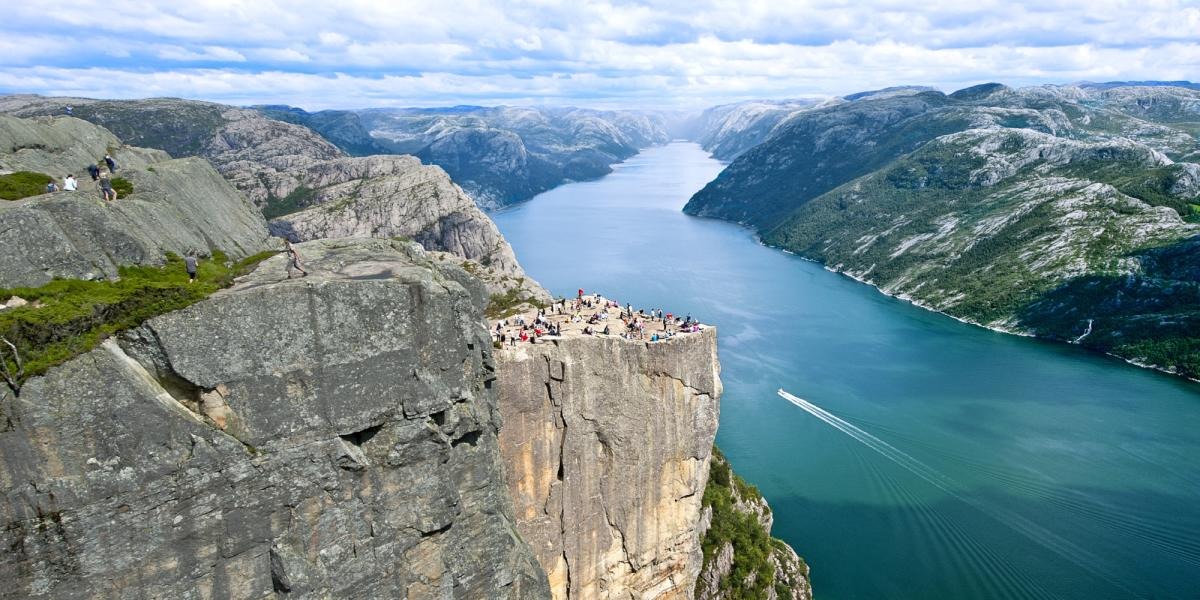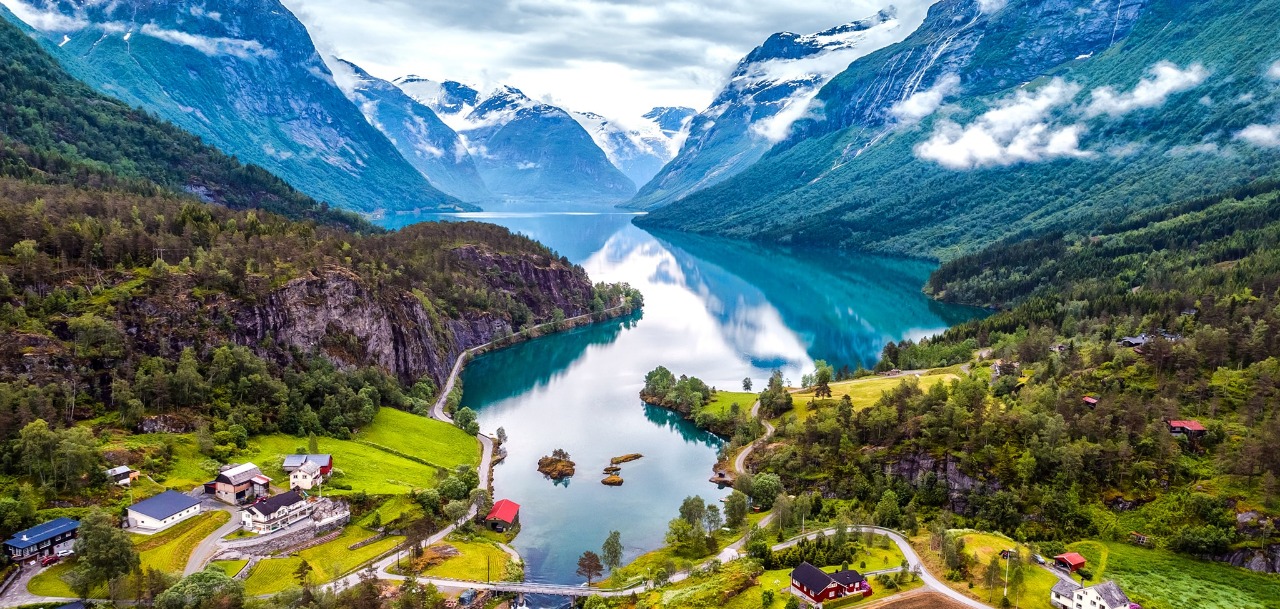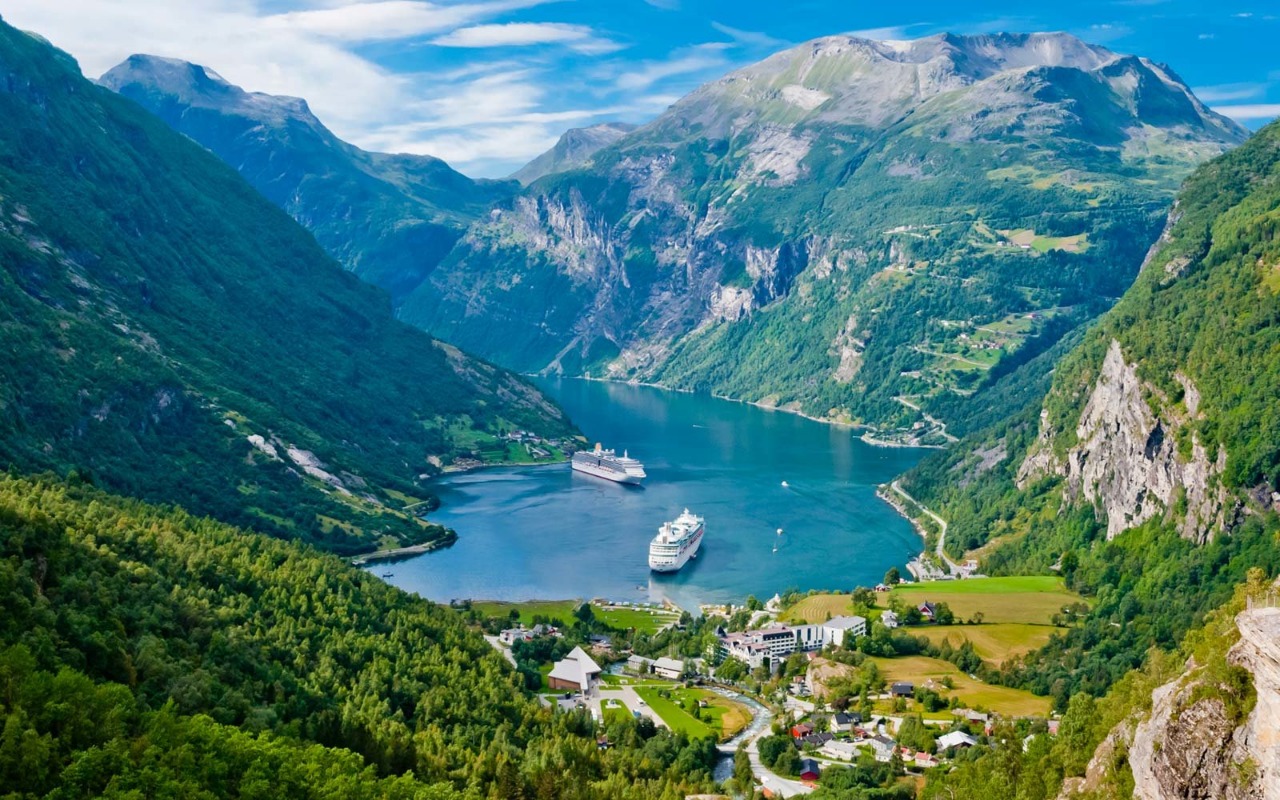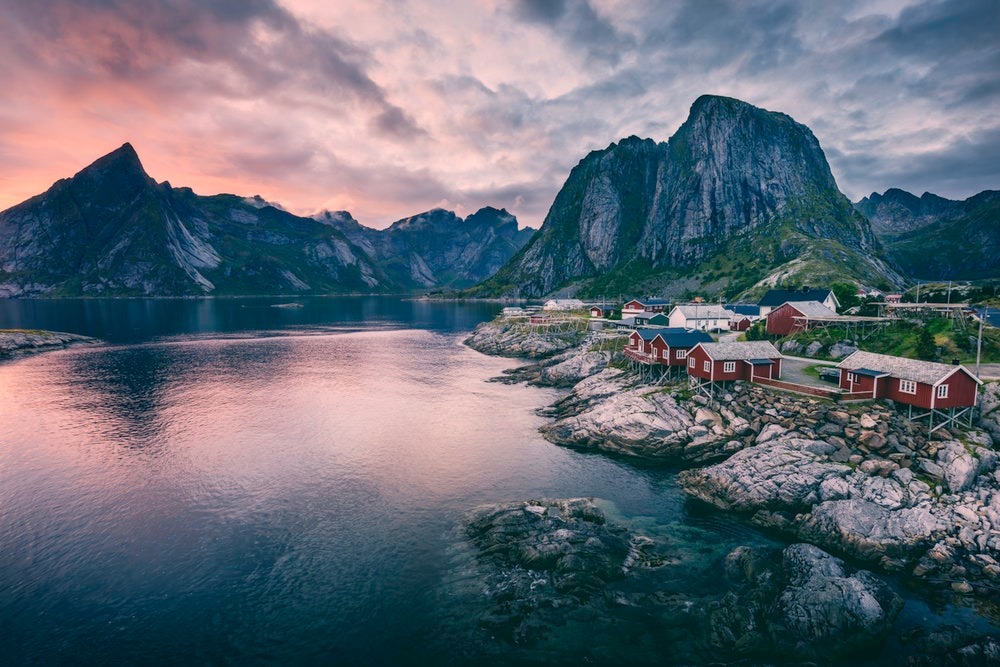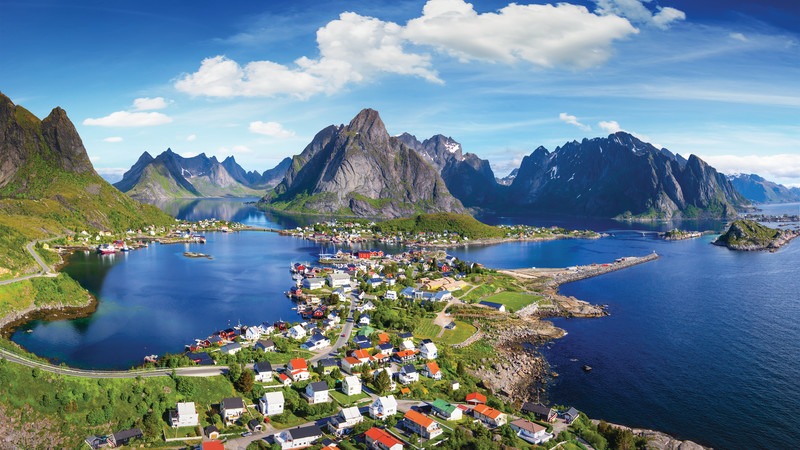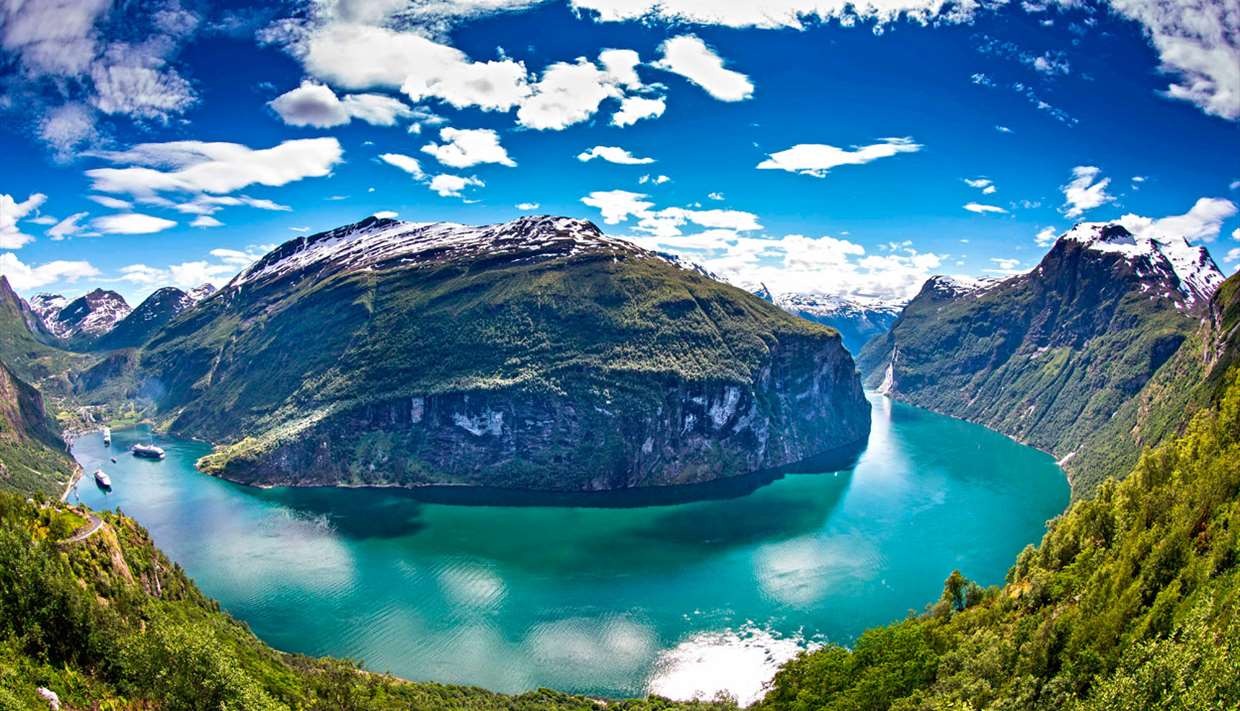Foto da: Norvegia
Mappa localizzazione
Aeroporti
Alberghi e altri alloggi
Campi da golf
Cosa visitare
Consolati ed Ambasciate
World Nomads
L´assicurazione di viaggio con la copertura maggiore
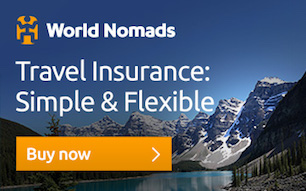
L´assicurazione di viaggio con la copertura maggiore

Norvegia
La Norvegia è un paese dell'Europa settentrionale che occupa la parte occidentale della penisola scandinava, l'isola di Jan Mayen e l'arcipelago artico delle Svalbard, attraverso il trattato di Svalbard. La terraferma del paese divide il confine orientale con la Svezia e il nord con la Finlandia e la Russia. Il Regno Unito e le Isole Faroe sono ad ovest attraverso il Mare del Nord, l'Islanda e la Groenlandia si estendono ad ovest attraverso il Mare di Norvegia, e la Danimarca si trova vicino all'estremità meridionale del paese, attraverso lo Stretto di Skagerrak. L'isola Bouvet e l'isola Peter I sono territori dipendenti (norvegese: Biland) della Norvegia, ma non sono considerati parte del Regno. La Norvegia rivendica anche una parte dell'Antartide nota come Queen Maud's Land, una rivendicazione riconosciuta da Australia, Francia, Nuova Zelanda e Regno Unito. L'estesa costa della Norvegia, affacciata sull'Oceano Atlantico settentrionale e sul Mare di Barents, ospita i suoi famosi fiordi.
Lingua ufficiale
Norvegese, Sami (in otto comuni), Kven (in un comune).
valuta
Corona norvegese
Documentazione
Poiché la Norvegia è membro dello spazio Schengen, per i cittadini dell'Unione europea non è richiesto il visto per un soggiorno inferiore a 90 giorni.
Nonostante sia stato permesso di viaggiare in Norvegia solo con carta di cittadino / carta d'identità, il possesso di un passaporto valido è raccomandato, come è richiesto questo documento per qualsiasi atto avente effetto sul diritto interno norvegese, come ad esempio: aperto conto in banca, applicare per un soggiorno di oltre 90 giorni, permesso di soggiorno, autorizzazione al lavoro, identificazione con la polizia e presso l'ufficio postale.
In viaggio con i bambini: quando un genitore viaggia con un bambino (un minore), deve portare un'autorizzazione scritta in inglese e firmata dall'altro genitore; se il minore è solo o accompagnato da un terzo adulto, è richiesta l'autorizzazione di entrambi i genitori.
Nonostante sia stato permesso di viaggiare in Norvegia solo con carta di cittadino / carta d'identità, il possesso di un passaporto valido è raccomandato, come è richiesto questo documento per qualsiasi atto avente effetto sul diritto interno norvegese, come ad esempio: aperto conto in banca, applicare per un soggiorno di oltre 90 giorni, permesso di soggiorno, autorizzazione al lavoro, identificazione con la polizia e presso l'ufficio postale.
In viaggio con i bambini: quando un genitore viaggia con un bambino (un minore), deve portare un'autorizzazione scritta in inglese e firmata dall'altro genitore; se il minore è solo o accompagnato da un terzo adulto, è richiesta l'autorizzazione di entrambi i genitori.
turismo
Scopri l'aurora boreale o il sole di mezzanotte nella zona a nord del Circolo Polare Artico, o visita i famosi fiordi norvegesi circondati da alte montagne e ghiacciai.
Scopri l'architettura moderna, il fiordo, la montagna e i paesaggi costieri.
Un viaggio con l'iconico Hurtigruten offre i migliori panorami a un ritmo delicato: è il modo ideale per scoprire il variegato paesaggio costiero della Norvegia.
La natura governa la Norvegia settentrionale e in migliaia di anni le persone hanno trovato il modo di adattarsi al clima artico.
Le isole Svalbard si trovano nell'Oceano Artico, a metà strada tra la Norvegia e il Polo Nord. Qui troverai il deserto artico.
In Norvegia, tutti hanno il diritto illimitato di accesso al campo, compresi i parchi nazionali.
L'associazione norvegese di trekking presenta 10 passeggiate nelle montagne preferite in Norvegia. Besseggen e Preikestolen sono tra le sue raccomandazioni.
L'astronomo più famoso della Norvegia, Knut Jørgen Røed Ødegaard, condivide i suoi migliori consigli di viaggio di sole di mezzanotte e alcuni fatti interessanti, piuttosto bizzarri.
Le principali attrazioni di Oslo includono il Parco delle sculture Vigelandsparken, il Teatro dell'Opera, il trampolino per il salto con gli sci Holmenkollen e il Museo delle navi vichinghe.
Scopri l'architettura moderna, il fiordo, la montagna e i paesaggi costieri.
Un viaggio con l'iconico Hurtigruten offre i migliori panorami a un ritmo delicato: è il modo ideale per scoprire il variegato paesaggio costiero della Norvegia.
La natura governa la Norvegia settentrionale e in migliaia di anni le persone hanno trovato il modo di adattarsi al clima artico.
Le isole Svalbard si trovano nell'Oceano Artico, a metà strada tra la Norvegia e il Polo Nord. Qui troverai il deserto artico.
In Norvegia, tutti hanno il diritto illimitato di accesso al campo, compresi i parchi nazionali.
L'associazione norvegese di trekking presenta 10 passeggiate nelle montagne preferite in Norvegia. Besseggen e Preikestolen sono tra le sue raccomandazioni.
L'astronomo più famoso della Norvegia, Knut Jørgen Røed Ødegaard, condivide i suoi migliori consigli di viaggio di sole di mezzanotte e alcuni fatti interessanti, piuttosto bizzarri.
Le principali attrazioni di Oslo includono il Parco delle sculture Vigelandsparken, il Teatro dell'Opera, il trampolino per il salto con gli sci Holmenkollen e il Museo delle navi vichinghe.
gastronomia
La cucina norvegese è famosa per la sua semplicità e diversità, tradizionalmente basata sulle materie prime disponibili nel paese, con particolare attenzione alla caccia, alla pesca e al bestiame, a differenza del resto d'Europa. Tuttavia, la moderna cucina norvegese è influenzata dalla globalizzazione e i ristoranti urbani hanno lo stesso menu previsto da qualsiasi città dell'Europa occidentale.
Il salmone affumicato è un piatto tipico di popolarità internazionale. Esiste in molte varietà e di solito viene servito con uova strapazzate, aneto e panini alla senape. Ci sono anche gravlaks (norvegese: salmone sepolto), salmone curato con sale e zucchero, condito con aneto e facoltativamente con altre erbe e condimenti. Un piatto ancora più magro è il rakfisk (norvegese: pesce inzuppato).
La più grande esportazione della Norvegia è già stata il merluzzo, ma un gran numero di specie ittiche sono popolari, come il salmone, l'aringa, il merlano e lo sgombro, freschi, affumicati, salati o in scatola.
Uno dei piatti di merluzzo più tradizionali della Norvegia è chiamato lutefisk, il cui nome significa letteralmente pesce con soda caustica, perché è fatto con soda caustica o idrossido di potassio. La stagione del lutefisk inizia a novembre e di solito viene servita durante il periodo natalizio.
Il lompe, una sorta di crepe a base di patate, viene solitamente consumato avvolto intorno a una salsiccia con ketchup e può essere trovato nei negozi di alimentari di strada in tutta la Norvegia.
Nelle salsicce, si trova la morrpølse, consumata fin dall'epoca dei Vichinghi. Sempre sul lato dei prodotti affumicati, il fenalår, che assomiglia a un prosciutto crudo, ma fatto con il cosciotto d'agnello, è molto popolare.
Hakkasteik è anche un piatto popolare, composto da carne macinata di vari animali, come carne di maiale, manzo e agnello.
All'inizio dell'autunno è consuetudine, in alcune regioni del paese, consumare fårikål, uno stufato di agnello e cavoli.
Un altro piatto tradizionale è lo slottsstek, o arrosto dal castello del re, un arrosto di manzo al forno, con condimenti che non sono tipici della cucina norvegese di tutti i giorni.
Nel caso del pane, krotekaker, un pane tradizionale della regione di Hardanger e lefse, un pane norvegese dalla forma simile a una tortilla messicana, fatto con patate, latte o panna e farina e cotto in un piatto.
Tra i formaggi norvegesi, spiccano brunost, gamalost e jarlsberg.
In Norvegia è possibile trovare diversi tipi di bacche, con il consumo giornaliero di gelatine che sono comuni.
Nei dolci, il kransekake, normalmente consumato in occasioni festive come matrimoni, battesimi, Natale e Capodanno può essere evidenziato. Lo skolebrød, che significa pane dolce della scuola, ha dato origine a un concorso nel 2009, al fine di scegliere la migliore ricetta per il futuro.
Il salmone affumicato è un piatto tipico di popolarità internazionale. Esiste in molte varietà e di solito viene servito con uova strapazzate, aneto e panini alla senape. Ci sono anche gravlaks (norvegese: salmone sepolto), salmone curato con sale e zucchero, condito con aneto e facoltativamente con altre erbe e condimenti. Un piatto ancora più magro è il rakfisk (norvegese: pesce inzuppato).
La più grande esportazione della Norvegia è già stata il merluzzo, ma un gran numero di specie ittiche sono popolari, come il salmone, l'aringa, il merlano e lo sgombro, freschi, affumicati, salati o in scatola.
Uno dei piatti di merluzzo più tradizionali della Norvegia è chiamato lutefisk, il cui nome significa letteralmente pesce con soda caustica, perché è fatto con soda caustica o idrossido di potassio. La stagione del lutefisk inizia a novembre e di solito viene servita durante il periodo natalizio.
Il lompe, una sorta di crepe a base di patate, viene solitamente consumato avvolto intorno a una salsiccia con ketchup e può essere trovato nei negozi di alimentari di strada in tutta la Norvegia.
Nelle salsicce, si trova la morrpølse, consumata fin dall'epoca dei Vichinghi. Sempre sul lato dei prodotti affumicati, il fenalår, che assomiglia a un prosciutto crudo, ma fatto con il cosciotto d'agnello, è molto popolare.
Hakkasteik è anche un piatto popolare, composto da carne macinata di vari animali, come carne di maiale, manzo e agnello.
All'inizio dell'autunno è consuetudine, in alcune regioni del paese, consumare fårikål, uno stufato di agnello e cavoli.
Un altro piatto tradizionale è lo slottsstek, o arrosto dal castello del re, un arrosto di manzo al forno, con condimenti che non sono tipici della cucina norvegese di tutti i giorni.
Nel caso del pane, krotekaker, un pane tradizionale della regione di Hardanger e lefse, un pane norvegese dalla forma simile a una tortilla messicana, fatto con patate, latte o panna e farina e cotto in un piatto.
Tra i formaggi norvegesi, spiccano brunost, gamalost e jarlsberg.
In Norvegia è possibile trovare diversi tipi di bacche, con il consumo giornaliero di gelatine che sono comuni.
Nei dolci, il kransekake, normalmente consumato in occasioni festive come matrimoni, battesimi, Natale e Capodanno può essere evidenziato. Lo skolebrød, che significa pane dolce della scuola, ha dato origine a un concorso nel 2009, al fine di scegliere la migliore ricetta per il futuro.
Clima
Il clima della Norvegia può essere oceanico, continentale, subartico e alpino, con estati miti e inverni lunghi e rigidi, con forti venti e alte nevicate; ma a differenza degli altri paesi scandinavi, una vasta fascia costiera confinante con il Mare del Nord e il Mare di Norvegia è riscaldata dalla Corrente del Golfo. Le isole Lofoten, tuttavia, presentano la più grande anomalia climatica positiva in termini di latitudine, tuttavia, al confine con la Finlandia nella Contea di Finnmark, i termometri possono registrare 40 ° C negativi tra dicembre e marzo. La temperatura più alta registrata nel paese era di 35.6 ° C a Nesbyen, mentre la temperatura più bassa era di -51.4 ° C a Karasjok.
sicurezza
La Norvegia è generalmente un paese sicuro e pacifico; tuttavia, condivide la minaccia del terrorismo nazionale e internazionale con l'Europa, e non si possono escludere attacchi o attacchi contro i civili. Come in altri paesi europei, c'è qualche crimine. Come tale, le precauzioni dovrebbero essere prese in caso di un tentativo di furto, soprattutto nelle zone più trafficate di Oslo, come la stazione ferroviaria centrale e gli aeroporti di Gardermoen, Rygge e Sandefjord Torp.
Salute
Non è richiesta alcuna assistenza sanitaria speciale in quanto in Norvegia non sono note epidemie o malattie specifiche. Il possesso di un'assicurazione sanitaria prima di un viaggio in Europa fornisce l'accesso diretto ai servizi sanitari norvegesi, in particolare i servizi di emergenza.
Lo standard dei servizi sanitari in Norvegia è relativamente buono, ma i costi sono elevati e un'assicurazione medica e di viaggio completa (compresi gli incidenti che coinvolgono gli sport invernali è consigliata se il motivo i viaggi includono lo sci, lo snowboard o altri sport rischiosi).
Lo standard dei servizi sanitari in Norvegia è relativamente buono, ma i costi sono elevati e un'assicurazione medica e di viaggio completa (compresi gli incidenti che coinvolgono gli sport invernali è consigliata se il motivo i viaggi includono lo sci, lo snowboard o altri sport rischiosi).
Telecomunicazioni ed elettricità
Cellulari
L'utilizzo di dispositivi mobili può essere utilizzato se il roaming è abilitato, prestando tuttavia attenzione a tariffe di roaming molto elevate.
Internet
Il paese è ben servito dai servizi internet nelle principali città, ci sono diversi cyber-caffè con connessioni ad alta velocità.
Nel caso abbiate un laptop o un notebook, ci sono alcuni caffè che offrono la connessione wi-fi gratuita.
elettricità
L'elettricità è a 230 Volt 50 Hz.
Si consiglia di avere un kit adattatore per le prese.
L'utilizzo di dispositivi mobili può essere utilizzato se il roaming è abilitato, prestando tuttavia attenzione a tariffe di roaming molto elevate.
Internet
Il paese è ben servito dai servizi internet nelle principali città, ci sono diversi cyber-caffè con connessioni ad alta velocità.
Nel caso abbiate un laptop o un notebook, ci sono alcuni caffè che offrono la connessione wi-fi gratuita.
elettricità
L'elettricità è a 230 Volt 50 Hz.
Si consiglia di avere un kit adattatore per le prese.
Altre destinazioni turistiche in:
Norvegia
Norvegia
Altre destinazioni turistiche mondiali
Perché prenotare con CLUBE TRAVEL
I migliori prezzi
Le nostre partnership con i più grandi operatori del mondo offrono una ricerca sui migliori prezzi sul mercato.
Più opzioni
In Rotas Turisticas è possibile prenotare l´hotel, acquistare il biglietto aereo, prenotare il trasferimento dall´aeroporto all´hotel e viceversa, prenotare escursioni locali, noleggiare l´auto, stipulare un´assicurazione di viaggio e consultare i luoghi da visitare e dove andare.
Destinazioni di vacanza
Centinaia di destinazioni per le vacanze con tutte le opzioni che ti consentono di scegliere facilmente la destinazione più adatta alla tua vacanza da sogno.
CLUBE TRAVEL
Links

